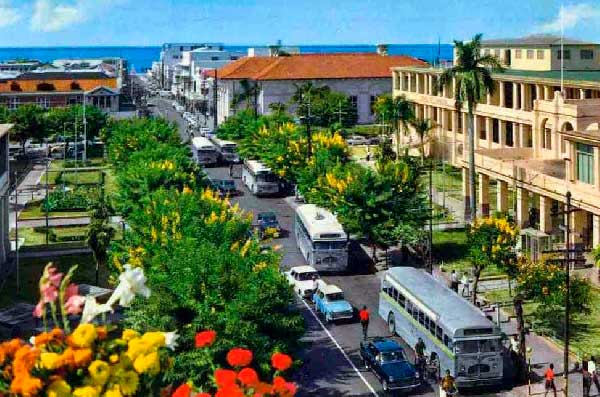Early electoral count gives centre-right JLP 49 of 63 seats in polls marked by low turnout.
Jamaica’s governing party has cruised to a landslide re-election victory marked by low turnout, prompting Prime Minister Andrew Holness to promise to work on restoring voters’ trust in politics and continue fighting the country’s coronavirus outbreak.
The center-right Jamaica Labour Party (JLP) won 49 of 63 seats, an addition of 16 seats, according to an early count released about 9pm local time (02:00 GMT) on Thursday by the Electoral Commission.
“There is cause for celebration, but there is also significant cause for consideration,” Holness said in a subdued televised speech claiming victory.
“There are many Jamaicans who did not participate, there are many Jamaicans, who for fear of the virus, did not come to the polls, but for other reasons, apathy, frustrations, decided not to participate.”
Holness pledged to “continue our good policies” in order to “keep Jamaica on the path to prosperity”.
“We will be responsible with the power that you have given to us.”
Peter Phillips, leader of the opposition People’s National Party (PNP), appeared to have retained his seat, but he had previously declared that he would step down and retire from politics if his party lost the election.
The JLP captured the polls in 2016 with a one-seat margin, winning just 32 seats out of 63, then gaining one more seat in November 2017. This time, even former PNP Prime Minister Michael Manley’s stronghold seat fell to the JLP, surprising observers.
“The PNP are barely holding on in traditionally safe territory. This election represents a massive realignment of Jamaica’s political landscape, albeit with lower than expected voter turnout,” political analyst Ricardo Brooks told Reuters news agency.
In the run-up to the election, Holness credited his administration’s tax cuts and other reforms with bringing down unemployment to an all-time low and sharply reducing poverty. He also highlighted the construction of affordable housing and new roads.
But the prime minister has also been strongly criticized for his government’s handling of the coronavirus pandemic, with cases soaring in recent weeks.
Holness called the vote six months early, despite the island’s virus spike – a move some said put politics over public health.
He defended his decision during a debate last weekend, saying “the pandemic will only end when there is a safe and widely-distributed vaccine,” which he said was expected “well outside the constitutional limits to call an election”.
Low turnout
However, many Jamaicans decided voting was not worth the risk, with just 37 percent casting their ballots – well down on the 48 percent turnout at the last general election in 2016.
All voters had to wear a mask, have their temperature checked, clean their hands before entering polling stations and maintain social distancing.
Voters infected with COVID-19 were only allowed to leave isolation and cast their ballots after the polls closed, wearing a mask, face shield, gloves and a disposable gown.
Jamaica has recorded just under 3,000 coronavirus cases, while the death toll stands at 29, according to a tally by John Hopkins University.
The Caribbean island initially won plaudits for keeping the virus in check, but infections have tripled since early August, when the country celebrated its Emancipation and Independence holidays.
The government has been accused of ignoring expert advice by failing to impose restrictions during the celebrations, which have been partly blamed for the soaring caseload.
Amid increasing concern and rising criticism that election-related activities would further fuel the spread of the virus, Holness suspended his campaigning in the run-up to the vote.
Health Minister Christopher Tufton said the prime minister wanted to “send a strong message to the country that this is the responsible thing to do”. (https://www.aljazeera.com/news/2020/09/jamaica-governing-party-elected-landslide-200904074830187.html)






































